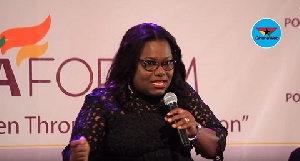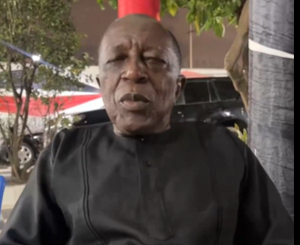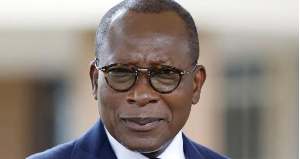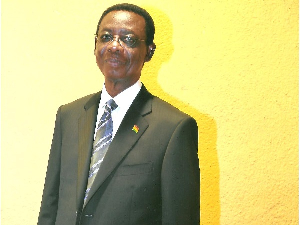Under the high patronage of His Royal Majesty King Mohammed VI, King of the Kingdom of Morocco, Action Health Incorporated, the International Planned Parenthood Federation, and the Association of Morocco Planned Parenthood, the 11th African Conference on Sexual Health and Rights was held in Rabat, Morocco from February 26 to March 2, 2024.
The goal of the conference was to interrogate and expand progress on the status of the sexual and reproductive health and rights of women and youth in Africa and to generally improve the social well-being of Africans.
The conference was attended by 650 delegates from 40 countries. It was opened by Her Excellencies, the First Ladies of the Central African Republic and Zambia, H.E. Brigitte Touadera and Ms. Mutinta Hichilema. There were remarks by the Director General of the International Planned Parenthood Foundation.
The conference took stock of responses to sexual and reproductive health and rights of women and youth in Africa; it identified, interrogated, and consolidated the best and most promising sexual and reproductive rights, health policies, and practices for women and youth in Africa. It also provided networking opportunities and strengthened coalitions and movements for advancing women and youth rights in Africa.
Nana Oye Bampoe Addo, a human rights lawyer and former Minister of Gender, Children and Social Protection from Ghana, delivered the keynote address for the conference. She spoke on 'Advancing the Sexual and Reproductive Health and Rights of Women and Young People in Africa'.
Nana Oye said that over the last three decades, sexual and reproductive health and rights of women and young persons had advanced in Africa, albeit slowly. She said that Africa was lagging behind the rest of the world in terms of the reproductive health indicators but had made some progress.
She said maternal mortality has declined from 857 maternal deaths per 1000 live births in 2000 to 525 deaths per 1000 live births in 2017. The contraceptive prevalence rate for the use of modern methods among married women in Africa has more than doubled and increased from 14.7 percent in 2000 to 27.9 in 2019.
She added that 17 percent of all women in Africa had an unmet need for family planning.
Discussing Female Genital Mutilation (FGM0, Nana Oye said that female genital mutilation/cutting remained an issue in East and West Africa. In East Africa very remarkably, FGM amongst children aged 0 to 14 years had decreased from 71.4 percent in 1995 to 8 percent in 2016. In West Africa, the rate declined from 73.6 % in 1996 to 25.4 % in 2017.
She said even though Africa had the most progressive legal provisions on
abortion in article 14 of the Additional Protocol to the African Charter on Human and People's Rights' the Maputo Protocol', abortion can be provided legally upon request with no justification requirement in only four countries in Africa.
Consequently, most of the abortions done in countries where it is illegal are unsafe. According to the 2021 Africa Gender Score Card, between 2015 and 2019, there were 8 million abortions by women aged 15 to 49 years.
Nana Oye mentioned that African states had advanced in sexual and reproductive healthcare, because the states had, over the decades, built a strong robust legal and policy framework, globally, regionally, and nationally to realize, fulfill, and address sexual and reproductive health.
The United Nations Convention on the Elimination of All Forms of Discrimination Against Women, the Programme of Action adopted at the International Conference on Population and Development in 1994, 'the Cairo Declaration' the Maputo Protocol, the Solemn Declaration on Gender Equality, the Continental Framework for Sexual and Reproductive Health and Rights were key legal and policy documents.
Nana Oye mentioned that research had been a strong component in advancing sexual and reproductive health in Africa. She said research had contributed to the availability of data through regular statutory reports and surveys like the Demographic and Health Surveys, Population Census, Multiple Indicator Cluster Surveys and the Africa Union Gender Scorecard.
She said surveys and research were of great significance in planning, programming, and developing strategy.
She recommended the collection of gender-sensitive and youth-oriented data by African statisticians. Other issues that needed more attention according to Nana Oye, was the need for Africa to adopt a regional and national framework to regulate 'Assisted Reproductive Technology'.
"There have been concerns about commercializing human reproduction and exploiting poor women as surrogates. The second is addressing socio-cultural and religious norms that play significant roles in shaping attitudes and behaviors. The third is using the opportunity of technology to facilitate easier access to sexual and reproductive health", she said.
Nana Oye said committed leaders were needed to advance sexual and reproductive health in Africa. She applauded the leading roles that the late Prof. Fred Sai, the late Dr Babatunde of UNFPA, and Ambassador Dr. Eunice Brookman Amissah had played in championing sexual and reproductive health in Africa.
Nana Oye concluded that sexual and reproductive health remains a complex issue in Africa that requires a multi-faceted long-term sustained approach.
"There must be sustained action by all stakeholders, gender-sensitive resource allocation that meets the needs of women and young persons in Africa, the right investment at the right time, optimizing opportunities for digitalization and technology, producing gender-sensitive data, an efficient health care system, high-level advocacy at all levels, global, regional and national, together, with increased political commitment by governments and regional bodies.
"My scorecard for Africa on sexual and reproductive health is that; yes, we lag behind the rest of the world, yes, we have made some progress, yes, there is more work ahead, yes, we know what needs to be done, yes, not enough has been done, and Yes, Lets do it together for women and youth of Africa", she stated.
Regional News of Tuesday, 5 March 2024
Source: The Lab













